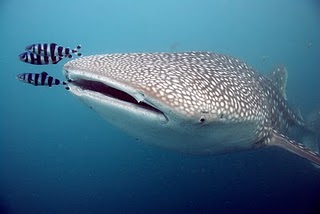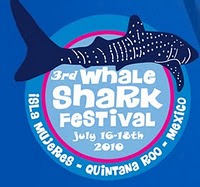Just five days before the Deepwater Horizon oil rig exploded in the Gulf of Mexico, I wrote a piece for this blog about a different oil spill in Australia, when a Chinese coal ship called the Shen Neng1 ran aground in Queensland and spilled thousands of gallons of fuel oil onto a section of the Great Barrier Reef. The gist of that post was that, horrible though they may be, there's no great cause to worry about acute events like that, because many marine ecosystems show remarkable resilience in the face of singular disturbance events. About a week later when the BP spill started, therefore, I had confidence that the well would swiftly be capped, the oil would dissipate, Gulf life would return to normal and folks would all move onto the next media-hyped panic-fest. But, as the days have dragged into weeks and the weeks are now dragging into two months and counting, and as the estimates rise of the amount of oil that continues to leak, and as successive attempts to cap the thing have failed, that confidence that the Gulf can recover to the same state it was in before the spill has started to get ever more shaky.

Now, I like to be a positive person; I try to see the upsides in most situations and not get caught up in negativity, which I consider one of the greatest and most utterly pointless malignancies of modern society. But, following the coverage in the mainstream news and on excellent blogs such as
DeepSeaNews and
Observations of a Nerd and thinking about the problem in terms of ecological processes, it seems to me that we may well have passed a
tipping point and that the ecosystems of the water column,
benthic (bottom) habitat and coastal marshes may
never return to their former states, even if they could stop the flow
right now. This principle has been elegantly captured by the "rolling ball" analogy, wherein an ecosystem has, by virtue of its structure and complexity, a sort of "potential energy" like a ball on a hill and that, if disturbed hard enough, you can start cascades that see the system diverge - the ball rolling down hill - until it settles in a new organisation - a dip in the hillside. The important point is that getting the ball back
up the hill to the former state is next to impossible, or at least requires inordinate amounts of energy and a thorough knowledge of the organising principles, which we lack.
What does all that mean for the Gulf, though? If a Spartina marsh isn't, then what is it? What happens in the water column? On the bottom? That's where research comes in, and I was encouraged to read on the NSF website and by conversations I had with NSF and NOAA Fisheries Service program officers yesterday that they have spent all available money on rapid response grants, most recently an NSF multi-institutional cruise coordinated by UGA to study microbial responses in the water column. Its not enough though, and the slowness of the peer review-based funding systems we have just can't meet the needs of a crisis of this magnitude fast enough, once the rapid response fund is tapped out. It really needs executive intervention: if the White House can propose a Wall Street or Auto industry bail-out, why not a rapid response research and rehabilitation fund? We can bill BP later!
Where is this all headed, and what should we expect to see in a "new" and different ecological regime in the Gulf of Mexico? No-one can be certain at this point, but a hall-mark of such reorganisations is loss of diversity, and in any worldview, that is something to be lamented. Lets hope it doesn't come to that, but at this point any concerns you may have that the damage to the gulf is irreparable could be forgiven, which is more than I can say for those responsible for this mess.
 Thursday, July 15, 2010 at 5:12PM
Thursday, July 15, 2010 at 5:12PM  CNN is reporting that the new device put on the wellhead of the BP oil rig Deepwater Horizon appears to have stopped the leak and is holding under the pressure, at least for now. Lets all cross fingers that this marks the end of major leaking into the Gulf of Mexico.
CNN is reporting that the new device put on the wellhead of the BP oil rig Deepwater Horizon appears to have stopped the leak and is holding under the pressure, at least for now. Lets all cross fingers that this marks the end of major leaking into the Gulf of Mexico.



